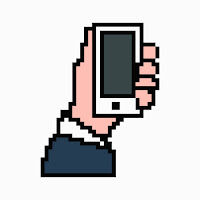Generative AI, or Artificial Intelligence, is a relatively new concept in the world of technology that people are still trying to navigate and understand. However, its likeness has been researched since the 1960s.

In 1966, MIT computer scientist Joseph Weizenbaum created the first-ever chatbot and named it ELIZA. The chatbot was named after Eliza Doolittle, the fictional character from George Bernard Shaw's 1913 play, Pygmalion. ELIZA was one of the earliest examples of Natural Language Processing, or NLP.
ELIZA's purpose was to simulate plausible conversations with human users by generating responses based on the text it was given. ELIZA was originally modeled after the Rogerian style of psychotherapy. The machine would rephrase any speech input it received into a question. For instance, if you told ELIZA a conversation with a friend made you sad, it would ask, "Why do you feel sad?"
Weizenbaum designed ELIZA with the intent of displaying how superficial the conversations between humans and machines were, but ELIZA's existence produced the complete opposite reaction from the general public. People loved talking to it and hearing it repeat and reflect everything they just said.
Weizenbaum was so disturbed by these reactions, that he spent the rest of his life warning people against the chaos that could ensue if computers were given too large of a role to play in society. The irony here is that a man who regrets his own invention and does not support the idea of humans and machines communicating helped to create Artificial Intelligence in the future.
Weizenbaum even went on to write against ELIZA in a book he published in 1976 titled, Computer Power and Human Reason. In the book, Weizenbaum states, "What I had not realized is that extremely short exposures to a relatively simple computer program could induce powerful delusional thinking in quite normal people."
People saw the machine as an illusion of compassion, which Weizenbaum feared the government and other corporations could take advantage of.
Weizenbaum passed away in March of 2008, well before the more advanced Artificial Intelligence that we know today came into existence. Although he would not approve if he were still alive today, ELIZA has acted as the perfect blueprint to build more advanced Artificial Intelligence creations.
In February 2010, Siri was released on Apple's App Store for iOS. Two months later, Apple acquired the app and integrated it into the iPhone 4S at its release in the fall of 2011. The separate Siri app was then removed from the App Store, and Siri became the official digital assistant of Apple. Siri can now be found on all Apple devices, including the iPhone, iPad, iPod Touch, Macbook, Airpods, Apple TV, and their latest virtual assistant development, HomePod. I am going in chronological order here, so I will touch on HomePod within the next few paragraphs. Siri uses voice queries, gesture-based control, and focus-tracking, and similarly to ELIZA, has Natural Language Processing abilities. Siri can adapt to its users' individual language uses, searches, and preferences, and delivers results that reflect them. The assistant can set up text messages, dial phone calls, schedule calendar events, set timers, set alarms, and come up with internet searches from the questions it is asked by users.

In 2011, Jeff Bezos was brainstorming the first Echo device for Amazon. He said that he wanted the device to be completely voice-controlled, which his team said would be hard to accomplish. In 2001, a speech synthesizer called Ivona was invented in Poland. Ivona's purpose was to convert text into audible speech with a human-sounding voice that humans could easily understand.
In 2013, Amazon bought Ivona to help them develop a voice for the artificial intelligence that would later reside in the Echo, Alexa. Ivona was inspired by the film 2001: A Space Odyssey, whereas Alexa was inspired by the Starship Enterprise in Star Trek. In 2014, Alexa was finally complete and ready to be released as a part of the Amazon Echo. Alexa, like ELIZA and Siri, also uses Natural Language Processing to perform its functions. Alexa has voice interaction and music playback. It can make a to-do list, shop on Amazon for you, set alarms, stream podcasts, and play audiobooks. It can also provide the weather, traffic, sports, and other news in real-time.

In 2016, the original Google Home was released in the United States, and devices under the Google Home name have continued to be released globally since 2017. Google's line of digital home products has been sold under a new name, Google Nest, since 2019. The name change's purpose was to keep all of Google's devices together under one name. Google has also come out with thermostats, security cameras, smoke detectors, smart doorbells, and more under the Nest branding.
I will, however, keep referring to the devices as Google Home in this blog post because that is what they were called when my family bought ours. Google Home was at first a series of smart speakers that had built-in Google Assistant, the company's own virtual assistant. Users can play music, control the playback of photos or videos, and receive news updates by voice. The devices allow users to control them by voice command. A later update allowed the Googe Home devices to connect to Bluetooth for audio streaming.
In 2016, the original Google Home was a tall cylindrical shape with LED dots on the top. In 2017, Google released the Google Home Mini and Google Home Max. In 2018, Google released the Google Home Hub, a smart speaker sporting a 7-inch touchscreen. Finally in 2019, after rebranding to Google Nest, the Google Nest Hub Max, a bigger and newer version of the Google Home Hub, was released.

In 2018, Google decided to create its own virtual assistant to make phone calls for people, called Google Duplex. The point of Duplex was to schedule appointments and make restaurant reservations on a human's behalf while sounding like a human. Google wanted Duplex to sound as realistic as possible, so the company gave it a natural speech pattern that included filler words such as "er" and "mmm-hmm" to make it sound more human-like. Google Duplex was also able to ask businesses for their hours of operation during holidays and make the information available to view online with a Google search after receiving it.

In 2018, the first generation model of HomePod was released by Apple. HomePod has been sold alongside its smaller and less expensive version, HomePod Mini, since 2020. HomePod's first generation was discontinued in 2021 due to a series of complaints by users about its few abilities and hefty price tag, but the first generation of HomePod Mini got to stick around and is still sold today.
In 2023, Apple released a second generation of the HomePod with improvements. HomePod is a smart speaker that Apple designed to work with an Apple Music subscription. The device uses beamforming, a technique used to improve the signal-to-noise ratio of received signals, eliminate undesirable interference sources, and focus transmitted signals to specific locations.

In 2021, DALL-E was developed and released by the company OpenAI. DALL-E is able to generate digital images using natural language descriptions from users, called "prompts". In 2022, OpenAI released DALL-E 2. The purpose of the second model was to make images that appeared more realistic and could be viewed at higher resolutions. Microsoft decided to insert DALL-E 2 into their Designer app as well as their Image Creator tool, which is included inside Bing and Microsoft Edge. In 2023, OpenAI released its third model, DALL-E 3. The third model was created to be able to understand "significantly more nuance and detail" than its predecessors. The name DALL-E is a combination of the Pixar character, WALL-E, and the Spanish surrealist artist, Salvador Dalí.

2022 brought the initial release of ChatGPT, and 2023 introduced the stable release of the chatbot. ChatGPT stands for Chat Generative Pre-trained Transformer. It was developed by OpenAI, the same company that created DALL-E. ChatGPT is a language model-based chatbot that lets users refine and steer conversations toward whatever length, format, style, level of detail, and language they want. Users can get priority access to newer features with a paid subscription to ChatGPT Plus which was released in 2023 and costs users $20 monthly.
The chatbot was trained on its functions by humans through two different methods of training: RLHF and supervised learning. RLHF stands for reinforcement learning from human feedback. The way it works is, humans go into the chatbot's conversational history and rank its past performance. These rankings created "reward models" and helped to fine-tune the model even further. Supervised learning puts the trainers in the position of both the human users and the chatbot assistant itself.
After researching eight types of generative artificial intelligence, I have identified a big problem among at least three of them. Siri, Amazon Alexa, and Google Home/Nest all respond immediately to a simple voice command programmed into their system. Siri's command is, "Hey Siri". Amazon Alexa's command is, "Alexa". Google Home/Nest's command is, "OK Google". The problem that these simple voice commands have pointed out to me is: if people are able to grasp the attention of AI-controlled devices using a voice command and have them respond immediately to let us know that they're listening, does this mean that the devices are listening to people all the time 24/7? I believe it is possible, but I have no proof.


































